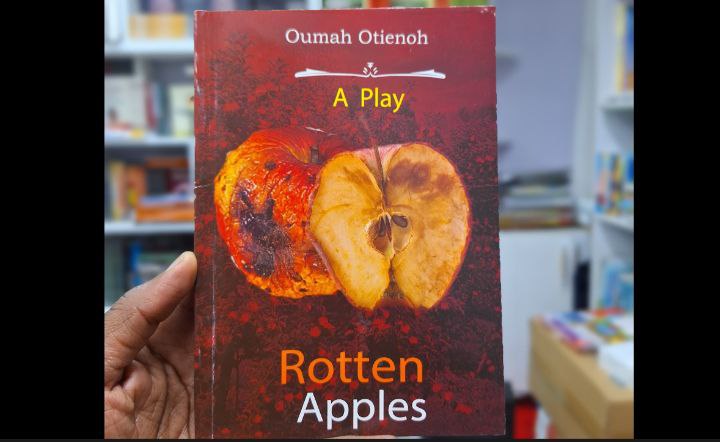Rotten Apples takes us on a wild-ride through the vibrant world of Nadabi, a fictional town in Nigeria, where the battle for literary success is not only fierce but filled with unexpected twists.
The play revolves around four friends: Akin, a nascent writer, Abuchi, Abisogun, and Yuwa. The narrative swiftly unfolds as Akin sets his eyes on the prestigious Nadabi Literary Prize, only to discover the web of deceit orchestrated by crafty elites in the writing world.
The introduction of Ayaba, an enigmatic ‘Queen of the City,’ adds a layer of complexity to the story. Her strategy to win the Literary Prize involves an affair with media practitioner Habib, leading to a scandalous revelation that shakes the foundation of the Nadabi literary community.
One of the play’s strengths lies in its fast-paced development, keeping the readers engaged with unexpected turns and sharp-humour. The author’s skill as a penman is evident, as he is a seasoned writer, crafting a narrative that explores the struggles of budding authors while shedding light on the dark side of literary politics.
The climax at the Literary Prize ceremony, where Akin and his friends expose the compromised judgement, is a gripping moment that showcases the power of solidarity in the face of corruption.
Rotten Apples is not for the faint-hearted or young readers due to its “mature” language. However, for those seeking a departure from sometimes-dense contemporary Kenyan fiction, the play offers a refreshing and accessible narrative. The humour sprinkled throughout the storyline provides a delightful balance to the intense themes explored.
The play is a well-crafted work that captivates with its intricate plot, sharp humour and a glimpse into the cutthroat world of literary ambitions. Oumah’s masterful storytelling makes this play a standout piece in contemporary Kenyan fiction, offering an enjoyable and thought-provoking experience for readers.
-Oumah Otienoh




